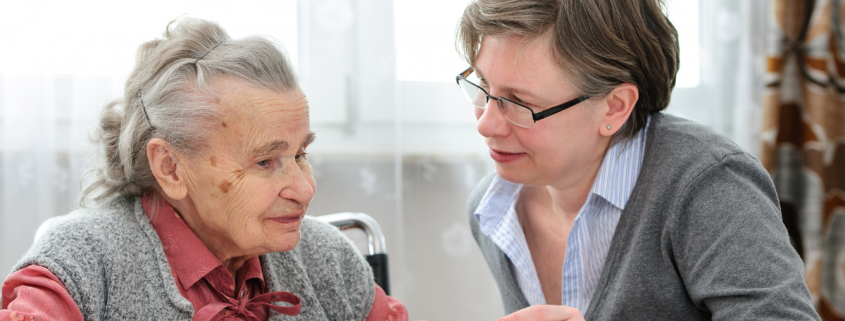What To Do When A Family Member Is Diagnosed With Dementia – How to Cope and Help
Year after year, dementia and Alzheimer’s disease are affecting progressively younger people. It is estimated that over eight hundred thousand people are affected by the illness in the United Kingdom. As such, we wanted to take a moment to dwell on this issue. From this article, you will find out the most popular advice on how to deal with dementia, learn about dementia support for family and how to help someone with early dementia, as well as the basics of caring for someone with dementia. So let’s get started.
How to deal with dementia in your family
The news of being diagnosed with Dementia or Alzheimer’s disease can come as a great shock, both to the family and the person concerned. How to deal with a dementia diagnosis?
Keep calm
The first step in the how to deal with dementia diagnosis journey is to try to stay calm.
Especially if you found out about the diagnosis in the company of the person concerned. Calmness is essential for both you and the patient. Therefore, try not to make any hasty moves or statements. Instead, take a few deep breaths and focus on supporting and caring for someone with dementia who is in your life.
Give yourself time
Remember that every emotion is appropriate. There is no such thing as a bad reaction to such news. This is especially true if dementia has affected someone close to you. You can’t immediately throw yourself into wi caring for someone with dementia. You need to take care of yourself first. Therefore, take some time out, try to occupy yourself with something you enjoy and only then set out to create a plan to help your patient. Otherwise, you won’t have enough resources for quality and long-lasting help.
Equip yourself with knowledge
It is human nature to be afraid of what we do not understand. This situation is no exception to the rule. As with other issues, before you start making plans and caring for someone with dementia, first try to find out as much as you can about the illness itself and how to help the patient. Then you will be able to really help that person and yourself.
Seek out the community
Remember that you are not alone. In the UK alone, around 850,000 thousand people have dementia and Alzheimer’s disease. Most of these people have families who have experienced or are experiencing the same thing as you. So instead of suffering alone, reach out to people who share this difficult experience with you. You can quickly find support groups for those whose family affected was by this condition on the internet and on social media. Also, speak up each out for dementia support for family centres and foundations.
Seek help from a psychologist
If the news that you have been diagnosed with dementia or Alzheimer’s disease has been weighing on you for a long time and you don’t know how to deal with it, it is essential to seek help from a psychologist or psychotherapist. Only a professional is equipped with all the tools to help you through this difficult journey and accept the diagnosis.
How to help someone with early-stage dementia
Caring for someone with Alzheimer’s disease or another type of dementia can be a long, stressful and intensely emotional affair. However, it is worth keeping a sober mind and planning everything at the beginning. Below you will find a short action plan you should create when caring for someone with dementia.
Have a conversation
The first item on this list is to have a frank and, most importantly, calm conversation with the person concerned. As a family member, you should reassure the person that their life is not over. Tell them that they still have family who cares about them and can count on you to help them. Then present options for help and gently suggest solutions to legal and housing issues.
Consider options to help
Caring for someone with dementia is a very difficult and time-consuming undertaking for which few people have the time and strength. Therefore, consider securing outside help. The best option by far is a live-in elderly caregiver because then the patient can stay in their own home and has 24/7 one-to-one support. You might also consider retirement homes or special facilities for people with dementia.
Resolve legal issues
Now it’s time for the financial and legal questions. It is a good idea to arrange a Lasting Power of Attorney (LPA) so that you can deal with financial matters and complete an Advanced Care Plan. However, remember to respect the wishes of the person who has been diagnosed with dementia so that they can have peace of mind about the future.
Provide developmental activities
Dementia is not a death sentence. Sometimes the disease can progress for years, during which time the patient experiences only occasional memory problems. Dementia can be prevented through memory- and brain-enhancing activities such as painting, puzzles or special games for seniors.
How to deal with dementia – summary
If your loved one has developed dementia, the best thing you can do is stay calm, and provide support and professional help. Don’t be afraid to delegate tasks, as a professional live-in carer will take better care of your loved one than you would after a hard day at work.















